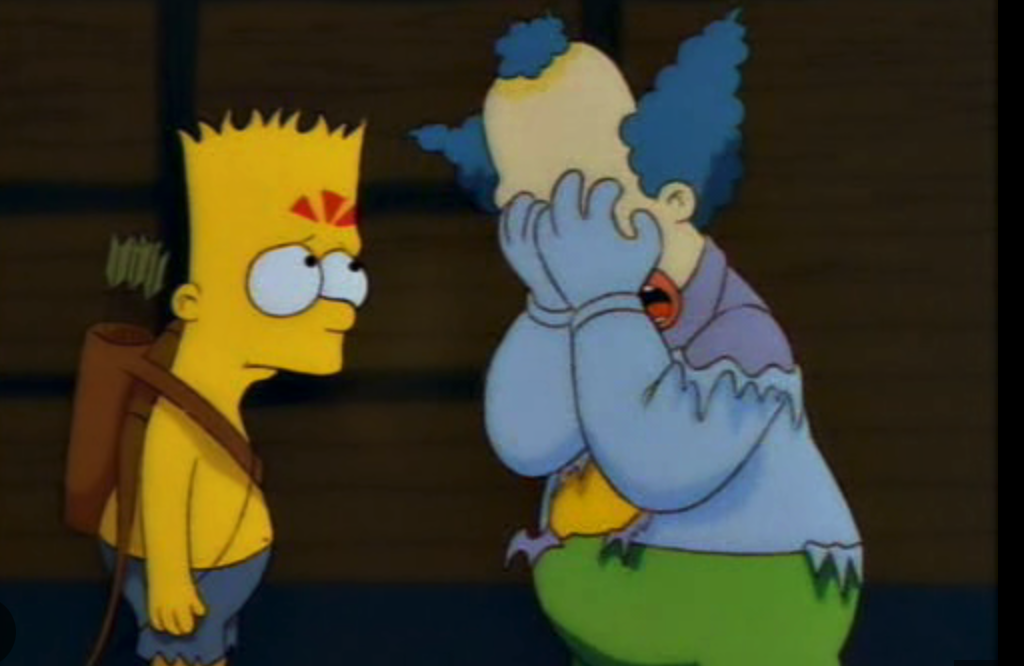
The Simpsons: Season 4, Episode 1
Directed by: Mark Kirkland
Starring: Dan Castellaneta, Julie Kavner, Nancy Cartwright
Rating: FIVE out of FIVE Krusty brand vitamins
How could you, Krusty? I’d never lend my name to an inferior product.
At its core, “Kamp Krusty” is the purest cartoon ideation of the childhood expectation vs. reality gut-punch. Between cartoons, the commercials rolled. Thirty-second opiates for the suburban mind, masterpieces in manipulation. Shiny bikes that could make you the king of the cul-de-sac. Dolls that talked, danced, and definitely wouldn’t break the second you pulled them out of the box. Action figures that weren’t just toys, they were the gateway to a sprawling cinematic universe, yours for $7.99 plus tax if you could wear down your parents’ resistance.
And for Bart and Lisa Simpson? All it took was a glossy commercial of Krusty the Clown’s summer utopia. It was all soft-focus sunsets and smiling kids paddling along Krusty himself. The cabins smelled of cedar. Songs around a roaring campfire, marshmallows roasted to golden perfection. Counselors who are basically cooler older siblings, teaching archery in matching polos. The whole thing played like a recruitment film for joy itself.
Remember being a kid, half-asleep on Saturday morning while mainlining sugar cereal while the television sold you lies?
“Kamp Krusty” tapped into that exact space. The hazy, Technicolor version of a product that lives in your head long before you see the real thing. The ads never show the peeling paint, the broken everything, the bully counselors with criminal records. Bart and Lisa bought into the idea that if you act now, you’re buying happiness.
Then the bus door opens. And the illusion doesn’t just wobble, it collapses. What they actually bought was the packaging. A hollowed-out version of the dream. Instead of magic, they got army surplus sleeping bags and a welcome speech that sounded like a threat.
It’s not just a bad summer. It’s an initiation. The first handshake from the adult world, where the product in the box will never match the one in the commercial, and no refund is coming. The revelation that sometimes, all you’re really buying is the right to be disappointed.